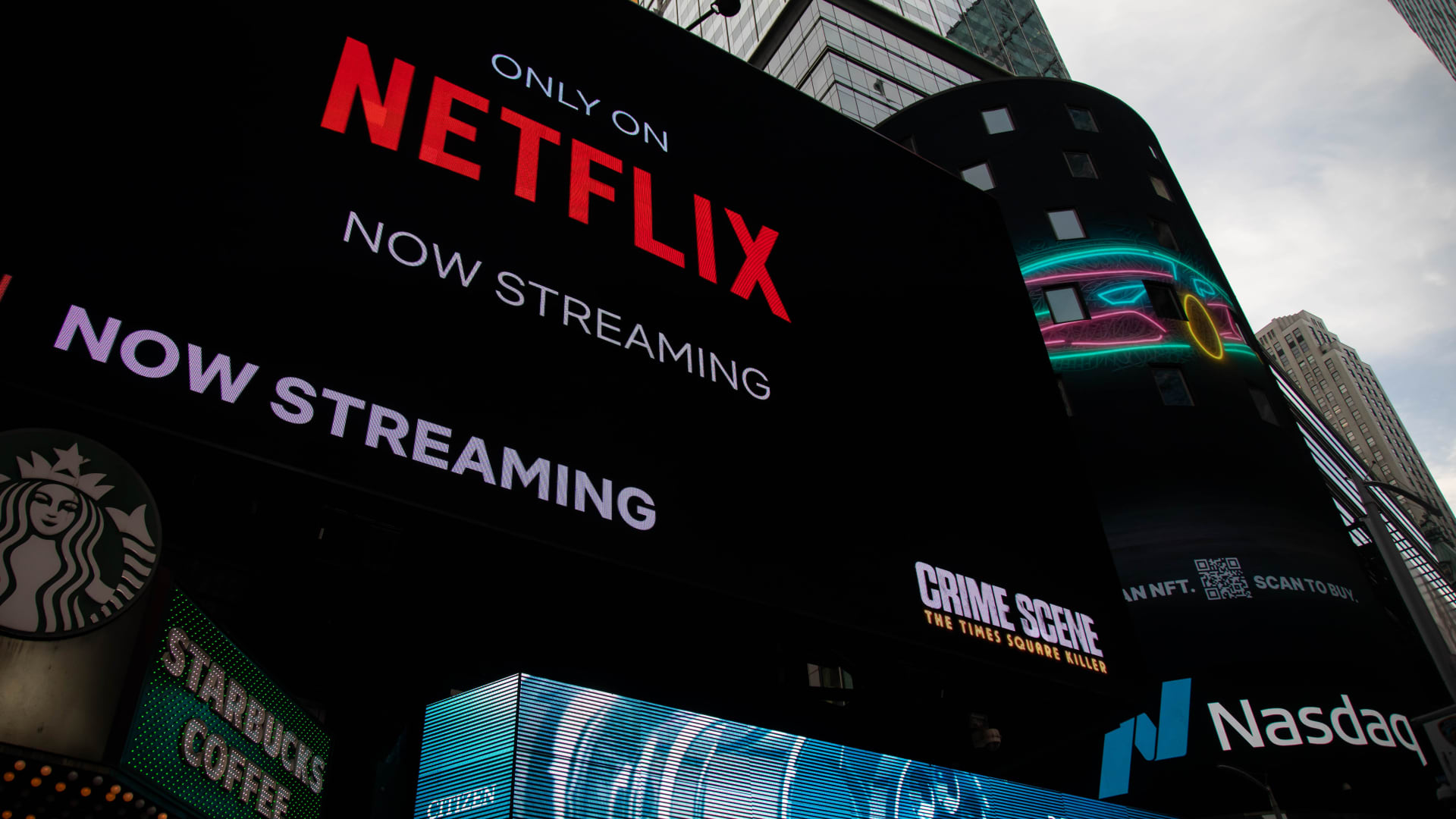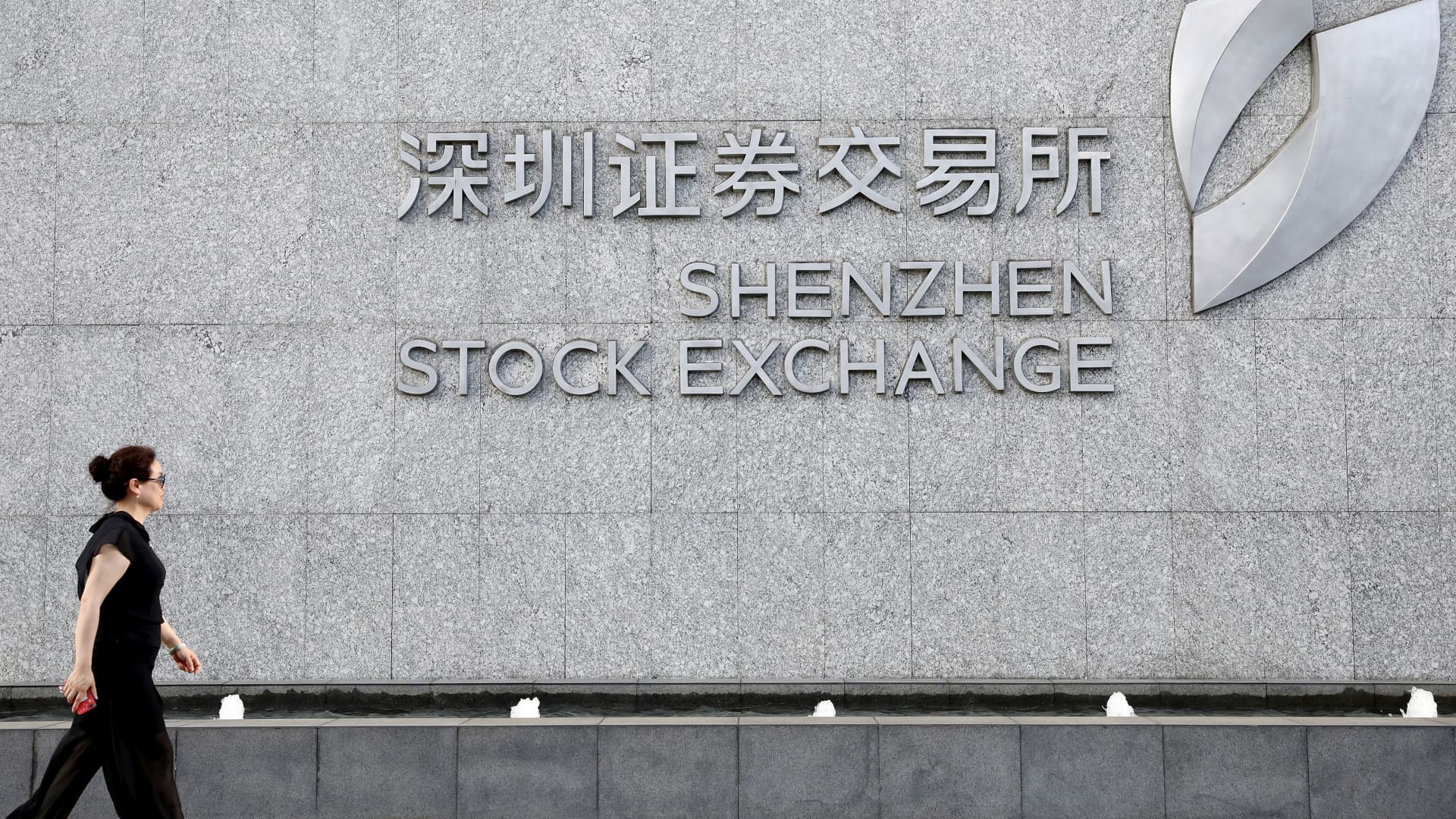Japan's Nikkei drops 5% to an 8-month low, Topix clocks worst day in 8 years as Asia markets fall
The gloomy sentiment in Asia markets comes after a sell-off on Wall Street, which saw all three major U.S. indexes plunge on recession fears.

An electronic stock board displayed inside the Kabuto One building in Tokyo, Japan, on Thursday, June 27, 2024.
Bloomberg | Bloomberg | Getty Images
Japan's benchmark indexes nosedived on Friday, with most Asia-Pacific markets lower after a sell-off on Wall Street overnight on recession worries.
The Nikkei 225 tumbled 5.81% to end at 35,909.7, marking its worst day since March 2020, according to Factset data, and dropping below 36,000 mark for the first time since January.
The broader Topix saw a larger loss of 6.14%, marking its worst day in eight years and closing at 2,537.6.
The largest loser on the Nikkei was Daiwa Securities, which saw an 18.85% wipeout of its market cap.
Other heavyweight stocks that fell include Softbank Group, which tumbled over 8%, while trading houses Mitsui and Marubeni saw losses of over 10% and 8%, respectively.
Japanese government bond yields fell, with the yield on the benchmark 10-year JGB falling below the 1% mark and hitting its lowest level since June 17.
South Korea's Kospi tumbled 3.65% to 2,676.19, seeing its worst day since August 2020 and dragged mostly by banking stocks, while the small-cap Kosdaq plunged 4.20% and reached its lowest level since November 2023.
K-pop stocks were initially a bright spot in the South Korean market, but some eventually succumbed to the sell-off, with only SM Entertainment and Hybe in positive territory after Hybe announced its new business strategy on Thursday after market hours.
Australia's S&P/ASX 200 fell 2.11% to close at 7,943.2, having its worst day since March 2023 and retreating from its all-time high on Thursday.
Hong Kong's Hang Seng index was 2.32% lower as of its final hour, while mainland China's CSI 300 posted the smallest loss in Asia, dropping 1.02% to close at 3.384.39
Separately, South Korea's inflation numbers for July came in slightly higher than expected, with the country's consumer price index climbing 2.6% year on year, compared to the 2.5% expected by economists polled by Reuters.
The gloomy sentiment in Asia markets comes after a sell-off on Wall Street in Thursday's trading session, which saw all three major U.S. indexes plunge on recession fears.
The Dow Jones Industrial Average dropped 1.21%, while the S&P 500 shed 1.37% and the tech heavy Nasdaq Composite slipped 2.3%.
The Russell 2000 index, the small-cap benchmark that has rallied lately, dropped 3%.
In the U.S., fresh data stoked fears over a possible recession and apprehensions that the Federal Reserve could be too late in cutting interest rates.
Initial jobless claims rose the most since August 2023. The ISM manufacturing index, a barometer of factory activity in the U.S., came in at 46.8%, worse than expected and signaling economic contraction.
After these data, the 10-year Treasury yield dropped below 4% for the first time since February.
—CNBC's Pia Singh and Samantha Subin contributed to this report.

 FrankLin
FrankLin 

































